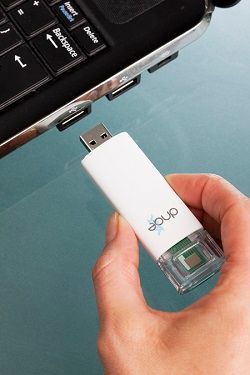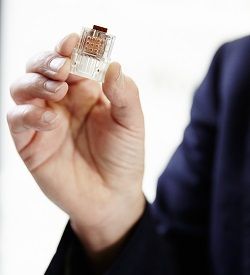Article
USB Detects HIV in 20 Minutes
Author(s):
In a world with iCloud and other storage options, USBs have somewhat taken a back seat. But a new test for the human immunodeficiency virus (HIV) could put them back in the spotlight.

In a world with iCloud and other storage options, USBs have somewhat taken a back seat. But a new test for the human immunodeficiency virus (HIV) could put them back in the spotlight.
Researchers from Imperial College London and DNA Electronics (DNAe) developed a USB device that can detect HIV with 95% accuracy.
“We have taken the job done by this equipment, which is the size of a large photocopier and shrunk it down to a USB chip,” senior author, Graham Cooke, a clinician scientist, said in a news release.
It works by placing a blood sample on the USB stick which then, using a mobile phone chip, shows a change in acidity if the virus is present. When that happens, it creates an electrical signal that can be read on a computer or other supported devices, as described in Scientific Reports.
Right now, HIV tests take at least three days — in part due to sending physical blood samples to labs. But in some parts of the world, there is no readily available testing. The team screened 991 blood samples (164 tested on the USB) and found that the device detected the virus much faster. In samples with >1000 copies RNA, the median time was 20.8 minutes.

In addition to detecting HIV, the device could be used by patients to monitor their treatment progress. Current routine HIV tests only detect the virus, not viral levels. So with further development, the USB has the potential to provide that opportunity to patients.
“This is a great example of how this new analysis technology has the potential to transform how patients with HIV are treated by providing a fast, accurate, and portable solution,” said Chris Toumazou, PhD, BSc, founder of DNAe and executive chairman and Regius professor at Imperial.
But HIV is only the beginning. The researchers are testing if the device can be used to accurately detect and other viruses.
We wondered if could make a test to detect #HIV virus on a USB stick. With the help of @dna_electronics, yes we can https://t.co/yS6ldNNGW2
— Graham Cooke (@grahamscooke) November 10, 2016
Related Coverage:
HIV Officially Listed as a Carcinogen
Magic Johnson Celebrates Life 25 Years After HIV Diagnosis
Cigarettes More Likely to Kill HIV-Positive Smokers Than the Virus





